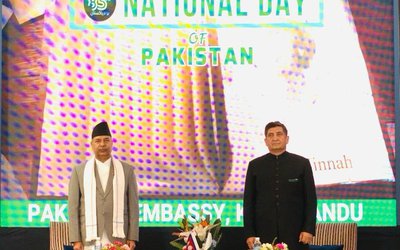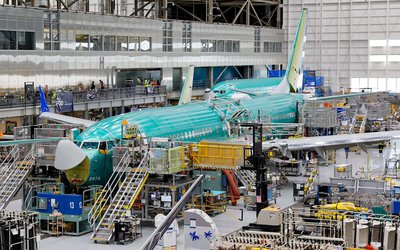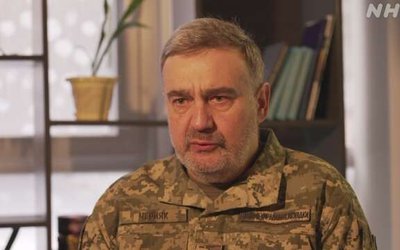
It is indeed a great privilege to be invited by SAIM to address the graduating class of 2024. I feel deeply honoured.With age and experience come insights of value,some of which I wish to share with you on a day of great pride and excitement for you as well as your family and your teachers.
The first thing to realize is that this degree is only a union membership, an entry ticket to a wider vista ahead. Remember how excited you were when you passed your final high school SLC exams? But does anybody ask you about that anymore? No, because what will be asked of you from today, especially in a practical discipline like management science, is what can you do? What have you done?Soon you will all be looking for jobs. Some of you will hopefully start your own businesses, while some may navigate towards further studies and academia. And in this search, there is a catch: you can’t get a job because you have no experience and you don’t have experience because you have not had a job.
How do you break this vicious circle? Start with any job or activity you can find, whatever it may be voluntary or very modestly paying, and start immediately. Don’t wait for that perfect job to come by or you may be waiting for ever as time slips by. Management is such a wide field with so many branches, you can enter anywhere. The moment you start doing something, you start building networks; you come to know your own field as it really is outside of the classroom; and you will understand the lay of the land, its promises and pitfalls.
My early job as an engineer was in bringing electricity to Dandeldhura some four decades ago. It was tough because one could find nothing, not even a shovel or nuts and bolts in Mahendranagar: one had to go to Palliya crossing the jungle where dacoit Phulan Devi was lurking, or even go to Lucknow for such pieces of equipment. This is not something they teach you in engineering schools, and has to be learned the hard way. In the process you also learn what it is that you really like doing; and I realized engineering as practiced in Nepal is mostly part of the problem and rarely that of a solution, leading me to migrate towards political economy. Engineering and management are wide fields with many ramifications: do you like shop floor work or personnel management or finance or something else? You have to find that out early because you will probably be doing that for the rest of your life. Otherwise, life – doing what you do not like – will be hell!
One of my fellow hydropower students while studying in Moscow Energy Institute was sent to work after graduation to the Bratsk hydropower station and got embroiled in reservoir level maintenance issues so some particular fish could spawn, fish that was part of the diet of Siberian cranes that transmigrate in winter across the Himalaya. Later he ended up becoming a major authority on Siberian cranes. Another fellow student in Berkeley, California ended up from being an economist when he came to the Energy and Resources Group program to becoming a major authority on the aquatic biology of the San Francisco Bay. Life is one life-long learning process and you can be whatever it is you like!
For those planning further studies and veering towards academia, my advice – and there are many who come to me asking “Sir, what should I do my PhD thesis on?” – is: first find out WHAT is the PROBLEM that so bothers you that it eats you from the inside. It should be such a problem that leaves you happy at 3AM poring through books and journals in a library rather than thinking you should have been in bed! That is the essence, the very start of good research, and not search for data, which is what you gather later to prove or disprove the solutions to your problem.
I also have a special message – through an event way back in 2006 – for those of you going to pursue professional management. I had been asked to serve in the International Environmental Advisory Board of Coca Cola, which was chaired by UK’s former agriculture and environment minister John Gummer and had as members eminent environmentalists like China’s Ma Jun and Amory Lovins of Rocky Mountain Institute known for his Soft Energy Paths. It was a time when India was rocked with the “pesticides in Coke” scandal as well as groundwater overdraft by Coke’s bottling plants.
Taking our advice, Coke did not become confrontational with environmentalists but argued that, since they did not use pesticides at any stage of their production processes, they sure would love to cooperate with environmentalists and find out where it came from (it transpired it did not come from any establishment under Coke jurisdiction). They also initiated massive water harvesting and artificial groundwater recharge efforts.
It was a surprise to me how advising business was so different from advising governments and NGOs, how they would resist any advice since it would come with a price, and once they figured out the cost versus benefits and accepted it, the energy and resources they would pour into following it was so astounding. My Cultural Theory colleague Michael Thompson recounts a similar story with the Dutch multinational Unilever and the controversy surrounding its sanitary toilet rim blocks. Not being confrontational but willing to take part with critics in a manner of constructive engagement allowed them to replace the controversial product with a better one they had sitting in their research labs all along!
One day the chairman of Coca Cola Neville Isdell (in 2008, Obama took him away to save General Motors) invited us to his palatial house for dinner. In the conversation that followed, I asked him what he looked for when hiring entrance level managers. His reply was very surprising: it was not just those with top-notch MBA degrees but whether they had also studied philosophy or English language and literature. Taken aback, I asked him why. He said complicated business contexts demanded out-of-the-box thinking and he had observed that those with a background in philosophy could play with complex ideas and those with good English could effectively convey such ideas and instructions that went with them in succinct memos.Think about this in your life-long learning.
Also remember how the neo-Marxist Stanford Prof. Paul Baran distinguished between an intellect worker such as, say a brilliant neurosurgeon, and an intellectual. The former merely uses his brains like a worker uses his hands but an intellectual is able to transcend the narrow confines of his discipline to relate it to the bigger concerns of the wider world. This also applies to the contradiction in the very title of your degree. You are students of management but your degree says Masters in Business Administration (MBA). An administrator is merely asked to rigorously follow the rules that are laid down by the higher ups; however, a manager has to play with complex options, decide the course and bear its consequences! Think of it!
A question many in your generation are facing is: should we work here in Nepal or go abroad? Based on my experience and those like me who studied abroad but came back to Nepal to work, I can say with confidence that the social returns and rewards are infinitely greater if you work here. While you may earn more in monetary terms in say the US (and also spend more for rent and living), there (with a handful of exceptions) you become – and forgive my harsh language – merely an overpaid, glorified clerk with no social standing. Think of Nepal’s first private sector architect/engineer Shankar Rimal who has left his mark on Kathmandu’s landscape whether in the Royal Palace or Shahid Gate. Others such as Dr Upendra Devkota and Dr Ashok Banskota set up hospitals, others who set up schools and colleges. Think of the respect they command here compared to what they would have if they had worked abroad.
What you should keep in mind on this issue is the formidable US debt crisis, the de-dollarization underway, and the looming recession in Europe and America which will force many recent emigrants into joblessness. The advice I give to Nepalis abroad when I meet them and they ask me what job they can get if they come back to Nepal is this: if you ask that question, you are not qualified to come back, since there is no job waiting for you. You with your knowledge and experience should come back and create jobs for at least ten others! I tell them in Nepal you have the freedom to chose between two extremes: one, you cannot to anything in Nepal and two, you can do jolly well anything. Use your moral compass to decide where in the spectrum you want to be.
For those of you with a political bent, my advice is: party politics and the politics of votes is not the only politics you have to engage in. There is a wide vista open for those who do non-partisan, issue-based politics whether in education, industry, natural resources, waste management, transport or a whole lot of other fields. That is a more pressing need in Nepal today (where elected party politicians do not have the faintest idea what to do), and it is also certainly more rewarding as I can testify.
I finally close with a story former UK ambassador Barney Smith recounted (in his preface to our book Ropeways in Nepal). His Thai editor friend, an economist, had lost his job and on the train coming back home met someone who was building a hotel but could not find a good manager. Barney’s editor friend offered to take up the challenge. When asked what he knew about hotels or construction management, he replied he knew nothing but having studied in Cambridge, he felt as a Renaissance man he could take up any challenge. He got the job and built a great hotel. Nepal needs more men and women with such broad vista confidence who are able to think outside the box. Hopefully we will see most of you with that inspiring boldness.
{Convocation address delivered by Mr. Dipak Gyawali (Pragya (Academician), Nepal Academy of Science & Technology (NAST) and former Minister of Water Resources) to the South Asia Institute of Management (SAIM) graduating MBA/BBA class of 2024 on 10th May 2024}

Dipak Gyawali
Gyawali is Pragya (Academician) of the Nepal Academy of Science and Technology (NAST) and former minister of water resources.
- Re-Thinking Democracy: Why South Asians Are worried
- Mar 17, 2025
- Nepal’s Governance Mired In Endemic Corruption
- Feb 20, 2025
- What Might The Age Of Trump Look Like?
- Jan 22, 2025
- Kathmandu Dialogue With Dugin
- Dec 25, 2024
- Bioregionalism Satsang
- Sep 27, 2024













